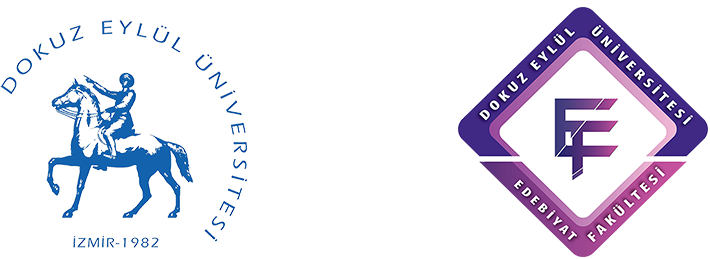QUALITY ASSURANCE AND ACCREDITATION COMMISSION
1- To fulfill quality management system requirements, to request, initiate and follow up corrective and preventive actions.
2- To organize and follow up the studies in line with the decisions of the Faculty Quality and Accreditation Boards.
3- To receive and share information about accreditation studies by attending meetings held at the Department Headquarters.
4- Keeping accreditation processes up to date by following national and international legislation.
5- Working in a coordinated manner by exchanging information with other department commissions.
6- To fulfill the quality management system requirements and follow corrective and preventive actions to improve the quality of education and research activities in cooperation with the University’s Quality Coordinator.
EDUCATION COMMISSION
1- To make necessary arrangements and updates to ensure that the program achieves its educational goals.
2- To present the improvement and development studies carried out to the relevant department and faculty commissions.
3- To follow the course programs offered at other universities at home and abroad. To ensure that the necessary arrangements are made by providing information to the Head of Department regarding the course programs followed.
4- To organize the course curriculum in line with surveys and suggestions. To control the course and load distribution in the department.
RESEARCH-DEVELOPMENT COMMISSION
1- To determine and implement the developments and improvements to be made by analyzing the research strategy and objectives in accordance with the strategic plan of the university.
2- To analyze the relationship of research with local, regional and national development goals and to inform the department by making relevant analyzes when necessary.
3- Evaluating research resources and working on improvements.
4- To work to monitor and improve the postgraduate education process and the performance of education.
5- To provide the necessary support and opportunities to improve the research competence of faculty members.
6- Evaluate research performance and work on improvements.
7- To activate the research activities of the department and support the development of innovative projects.
SOCIAL CONTRIBUTION COMMISSION
1- To review the department’s social contribution strategy in line with the principle of interaction with stakeholders and improving the quality of social services and to make the necessary evaluations and analyses.
2- To develop and implement effective strategies for social interaction and communication by analyzing the department’s social contribution resources.
3- To communicate with stakeholders with whom we can cooperate for social contribution projects and to evaluate the joint work that can be done.
4- To prepare reports regarding possible social contribution activities and the results of these activities.
INTERNATIONALIZATION COMMISSION
1- In line with its mission of being an internationally respected and entrepreneurial department, to realize the internationalization policies included in the university strategic plan by targeting the principles of internationalization to increase the quality of education, research, social contribution and student experience, and to create an environment that provides opportunities for intercultural interaction.
2- To follow international social and scientific activities that will develop intercultural consciousness and awareness and to inform students about these activities.
3- To coordinate internationalization activities by working in cooperation with Dokuz Eylül University International Relations Coordination Office.
4- To ensure that students and academic staff are informed about bilateral agreements and to monitor and improve the performance of internationalization activities.
MANAGEMENT SYSTEM COMMISSION
1- To analyze the operation of the management system and prepare the relevant organizational charts.
2- To ensure the up-to-dateness and control of online resources such as the Self-Assessment and Accreditation Data System and the Department website, which are among the policies of the Management System commission.
3- To coordinate the provision of equal and fair distribution of duties on a voluntary basis in the process of determining and implementing assignment criteria.
4- To analyze resources such as finance, infrastructure and human resources and to coordinate the distribution and use of these resources.
5- To regularly review the processes related to the department’s management system and develop improvement suggestions.
6- Coordinating with relevant parties to ensure management system policies are effectively communicated and implemented.
7- Monitoring and reporting management system performance and initiating corrective and preventive actions when necessary.
INTERNAL STAKEHOLDERS COMMISSION
1- To interact with internal stakeholders by informing them through announcements and meetings (online/face to face).
2- By establishing effective, systematic and targeted interaction with Internal Stakeholders; To consult stakeholders’ opinions on education, research and similar issues.
3- Internal Stakeholders’ thoughts; to determine using various methods such as meetings, interviews, surveys.
4- Determining the strengths and weaknesses of the department as a result of the opinions received from Internal Stakeholders; To share the results obtained with the relevant commissions.
EXTERNAL STAKEHOLDERS COMMISSION
1- In the public and private sectors in the areas where university units operate; To determine the External Stakeholders/Advisory Board by communicating with institutions, organizations, professional chambers and alumni.
2- To interact with external stakeholders by informing them through announcements and meetings (online/face to face).
3- By establishing effective, systematic and targeted interaction with External Stakeholders; To consult stakeholders’ opinions on education, research and similar issues.
4- Thoughts of External Stakeholders; to determine using various methods such as meetings, interviews, surveys.
5- Determining the strengths and weaknesses of the department as a result of the opinions received from External Stakeholders; To share the results obtained with the relevant commissions.
